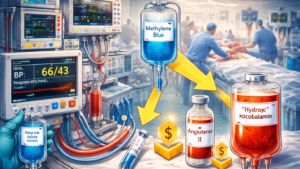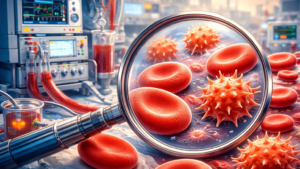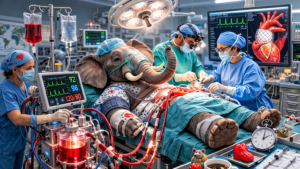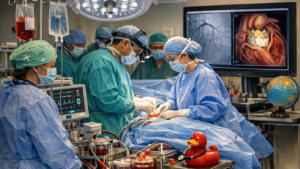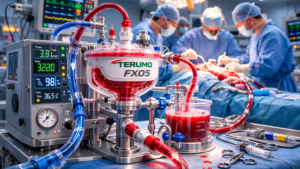In an innovative step toward enhancing kidney transplantation outcomes, researchers at the University of Cambridge have launched a single-centre, randomised pilot study to evaluate the safety and feasibility of incorporating the CytoSorb filter into normothermic machine perfusion (NMP) of donor kidneys prior to transplantation. This strategic intervention aims to attenuate the inflammatory and immune responses that significantly contribute to post-transplant complications such as delayed graft function (DGF).
Background: Addressing the Inflammation Challenge in Kidney Transplantation
Kidneys from extended criteria donors (ECD) and donors after circulatory death (DCD) are increasingly used due to a persistent shortage of transplantable organs. While these organs offer survival benefits compared to dialysis, they also carry a higher risk of DGF and subsequent complications including acute rejection, increased hospital stays, and diminished long-term graft survival.
Traditional hypothermic storage fails to adequately address ischemia-reperfusion injury (IRI), a process that triggers a cascade of inflammatory and immune responses once blood flow is restored. Normothermic machine perfusion, an alternative technique that maintains kidneys at physiological temperatures with oxygenated red blood cell solutions, offers a platform for organ assessment and targeted therapy delivery. However, studies have shown that even during NMP, inflammatory mediators are upregulated similarly to post-transplant reperfusion scenarios.
CytoSorb Technology: A Promising Solution
CytoSorb, a hemoadsorption device made of porous polymer beads, targets hydrophobic inflammatory mediators such as cytokines and chemokines. Prior research on non-transplanted human kidneys indicated that CytoSorb usage during NMP can remove these harmful mediators from perfusate, reducing inflammation-related gene expression associated with DGF. Despite promising preclinical data, this is the first trial evaluating CytoSorb in a clinical transplant setting.
Study Design and Methodology
This Phase 1 pilot trial is conducted at Cambridge University Hospitals NHS Foundation Trust. Twenty kidney transplant recipients will be randomized (1:1) to receive either standard NMP or NMP enhanced with the CytoSorb filter. Eligible recipients are adults aged ≥18 years undergoing their first or second kidney transplant from a DBD or DCD donor aged ≥50 years. Exclusion criteria include multiorgan or pediatric transplants and donors with complex vascular anatomy.
Intervention and Sample Collection
Kidneys undergo NMP for 2–6 hours at physiologic temperature and pressure. For the intervention group, the CytoSorb filter is added to the NMP circuit. The transplant procedure proceeds per standard clinical protocols. Post-transplant, a renal cortical biopsy is taken 45–60 minutes after reperfusion. Blood and urine samples from recipients are collected pre-surgery and on days 2 and 5.
Primary and Secondary Endpoints
The primary endpoint is inflammatory and immune gene expression in renal cortical biopsies post-transplant, analyzed using RNA sequencing. Secondary outcomes include:
- Incidence and duration of DGF.
- Graft function at multiple time points (via creatinine clearance and eGFR).
- Patient and graft survival at 3 months.
- Complication rates, biopsy-proven rejection, and length of hospital stay.
- Levels of inflammatory mediators and kidney injury biomarkers in perfusate, urine, and blood.
Data and Ethics Management
All data is anonymized and stored securely in compliance with data protection legislation. Biological samples are stored in accordance with the UK Human Tissue Act. The study is ethically approved and prospectively registered (ISCRTN ID: 13698207).
Expected Impact and Limitations
If successful, this trial could pave the way for integrating CytoSorb filtration into routine NMP protocols, potentially reducing inflammation-driven graft damage and improving outcomes for marginal kidney transplants. The comprehensive molecular analysis of both donor organs and recipient immune response provides unprecedented insight into transplantation immunobiology.
However, this study has limitations. The small sample size is sufficient for feasibility but underpowered for efficacy. Additionally, the absence of pre-NMP biopsies limits the understanding of baseline inflammation. Randomisation may also introduce bias due to unbalanced donor types.
Conclusion
This pilot trial represents a pioneering effort to enhance kidney transplant outcomes through immunomodulation during ex vivo perfusion. By assessing both safety and mechanistic insights, it sets the stage for future, larger-scale efficacy studies of CytoSorb therapy in solid organ transplantation.


